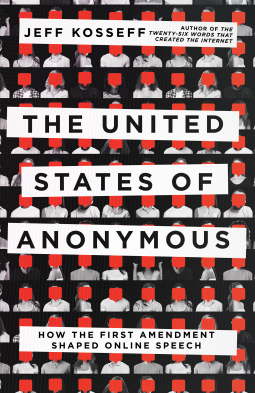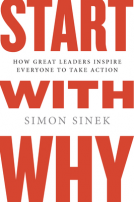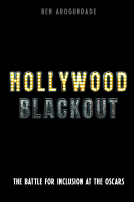
The United States of Anonymous
How the First Amendment Shaped Online Speech
by Jeff Kosseff
This title was previously available on NetGalley and is now archived.
Send NetGalley books directly to your Kindle or Kindle app
1
To read on a Kindle or Kindle app, please add kindle@netgalley.com as an approved email address to receive files in your Amazon account. Click here for step-by-step instructions.
2
Also find your Kindle email address within your Amazon account, and enter it here.
Pub Date Mar 15 2022 | Archive Date Jul 01 2022
Talking about this book? Use #TheUnitedStatesofAnonymous #NetGalley. More hashtag tips!
Description
In The United States of Anonymous, Jeff Kosseff explores how the right to anonymity has shaped American values, politics, business, security, and discourse, particularly as technology has enabled people to separate their identities from their communications.
Legal and political debates surrounding online privacy often focus on the Fourth Amendment's protection against unreasonable searches and seizures, overlooking the history and future of an equally powerful privacy right: the First Amendment's protection of anonymity. The United States of Anonymous features extensive and engaging interviews with people involved in the highest profile anonymity cases, as well as with those who have benefited from, and been harmed by, anonymous communications. Through these interviews, Kosseff explores how courts have protected anonymity for decades and, likewise, how law and technology have allowed individuals to control how much, if any, identifying information is associated with their communications. From blocking laws that prevent Ku Klux Klan members from wearing masks to restraining Alabama officials from forcing the NAACP to disclose its membership lists, and to refusing companies' requests to unmask online critics, courts have recognized that anonymity is a vital part of our free speech protections.
The United States of Anonymous weighs the tradeoffs between the right to hide identity and the harms of anonymity, concluding that we must maintain a strong, if not absolute, right to anonymous speech.
Advance Praise
"From the world's leading expert on Section 230, a new book with a balanced and insightful look at online anonymity—the good and the bad—that is required reading for anyone who wants to substantively engage in this debate."-Jimmy Wales, founder of Wikipedia
"An indispensable, in-depth look at both the history and present of anonymity protections in American life, media, and online culture. The United States of Anonymous will have resounding implications for the future of democracy."-Craig Newmark, founder of craigslist
"Providing both a great story and keen legal analysis, Jeff Kosseff examines what fuels our commitment to protecting anonymous speech in the United States—and the new and sometimes high costs of that unwavering allegiance."-Victoria Smith Ekstrand, author of Hot News in the Age of Big Data
"Jeff Kosseff weaves together history, legal issues, and public affairs in this vital, timely, and highly readable book. The United States of Anonymous should be required reading for all engaged in the debate over anonymity, identity, and privacy in the online age."-Jeff Jarvis, author of What Would Google Do?
"Jeff Kosseff has, once again, spotted the next looming topic in technology law, anonymous communication, illuminating its contours with his trademark skill. The United States of Anonymous is a foundational dive into one of the toughest areas of speech, privacy, and identity today."-Kate Klonick, St. John's University School of Law
"A superb book, accessibly written, that canvasses the history of anonymous speech and its interaction with the law. Jeff Kosseff has created a major framework for any future discussions of anonymity."-Anupam Chander, author of The Electronic Silk Road
Available Editions
| EDITION | Other Format |
| ISBN | 9781501762383 |
| PRICE | $28.95 (USD) |
| PAGES | 328 |
Links
Featured Reviews
"Anonymity is more than just about the ability to express oneself. It is a privacy concern."
I am not a law student or a lawyer, I picked this book up because I'd like to be more informed about free speech and anonymity. I got especially interested in what the internet does to our privacy after reading Edward Snowden's memoir, so I think this one was a great follow up.
The author is a cybersecurity lawyer and a professor so the book is more meaningful to people in the justice world, but I'd like to give my opinion as a regular reader.
The book starts by explaining how anonymity started off in the U.S from the colonial times and how it developed until today. The internet provides us with more anonymity (does it?) and therefore, it's influencing the world we live in. Undoubtedly, anonymous speech helps free speech by great measure. Many people who wouldn't speak up otherwise, finally have a platform to express themselves anonymously. But there's always a dark side to everything, there are also people who use anonymity to harm and bully others.
Compared to the rest of the world, the US apparently is the one nation that protects the right to anonymity more than all others. In the EU, they value more the privacy laws and there's this one case that blew my mind: there's a person using a teenage boys photo to get dates online. When the father of the kid sues to get this person's identity to sue them, Finland justice denies it because of privacy concerns. In the US, these cases usually go by weighing the benefits of anonymity and the consequences of it. Which makes much more sense obviously.
It was a genuinely interesting read for me. I've never thought about "the culture of anonymity" before, and what it creates. I agree with the author that nations should do whatever they can to protect it, of course to a limit. How many authors have used pseudonyms to write legendary books? Imagine they didn't have the right to do that. Anonymous speech and sharing of ideas also helped America create the democracy it has today, starting from the colonial times and distributing anonymous pampleths.
If you want to know more, you've got to read the book. Regular reader comment: yes, sometimes I was too tired to understand all the law lingo, but I didn't dwell on it and kept on reading.
Readers who liked this book also liked:
John Kotter; Holger Rathgeber
Business, Leadership, Finance, Nonfiction (Adult)











